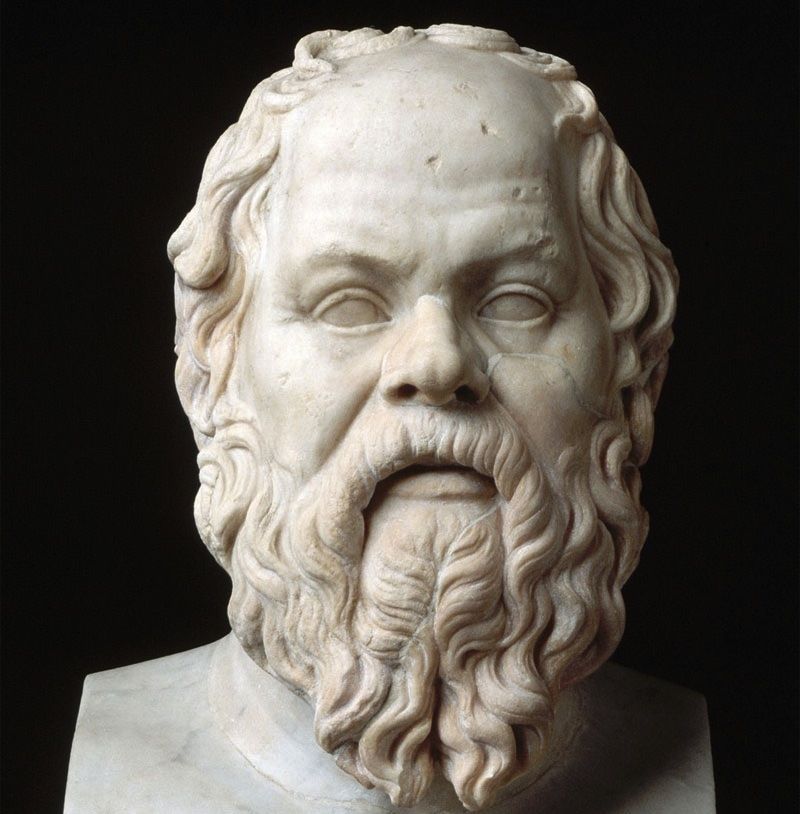Hero #123: Socrates … (01/31/16)
Socrates was a Greek philosopher credited with being one of the founders of Western philosophy, and with being the very first moral philosopher on record. An enigmatic figure, with none of his own writings having been discovered to date, Socrates is known chiefly through the accounts of classical writers, particularly his students Plato and Xenophon. Through his portrayal in Plato’s dialogues, Socrates has become renowned for his contribution to the field of ethics, especially via the development and use of both Socratic Irony (whereby a questioner feigns ignorance to allow another to open up and more thoroughly expose his or her falsehoods) and the Socratic Method (whereby a series of questions is asked not only to illuminate certain truths, but also to encourage fundamental insight into the issue at hand).
Socrates lived during the time of the transition from the height of the Athenian hegemony to its decline with the defeat by Sparta and its allies in the Peloponnesian War. Claiming loyalty to his city, Socrates clashed with the current course of Athenian politics and society, praising Sparta directly and indirectly in various dialogues. One of Socrates’ purported offenses was his position as a social and moral critic. Rather than upholding a status quo and accepting the development of what he perceived as immorality within his region, Socrates questioned the collective notion of “might makes right” that he felt was common in Greece during this period. Plato refers to Socrates as the “gadfly” of the state (as the gadfly stings the horse into action, so Socrates stung various Athenians), insofar as he irritated some people with considerations of justice and the pursuit of goodness. Indeed, his attempts to improve the Athenians’ sense of justice may have been the cause of his execution.
Socrates made the prominent Athenians he publicly questioned look foolish, naturally leading to accusations of wrongdoing. Socrates defended his gadfly role until his literally bitter end. At his trial, when Socrates was asked to propose his own punishment, he suggested a wage paid by the government and free dinners for the rest of his life, to fairly finance the time he had spent as Athens’ benefactor. Needles to say, this answer did not go over well, and Socrates was thrown into prison until his execution could be carried out. Interestingly enough, a viable escape plan was organized that would have succeeded, and yet Socrates turned down the offer of freedom, and chose instead to willingly die for the cause of justice and truth by ingesting poison in public before his accusers.
“Let him that would move the world first move himself … It is not living that matters, but living rightly … We are what we repeatedly do. Excellence, then, is not a trait but a habit.” ~ Socrates
“One who is injured ought not to return the injury, for on no account can it be right to do an injustice; and it is not right to return an injury, or to do evil to any man, however much we have suffered from him.” ~ Socrates





 ;
;